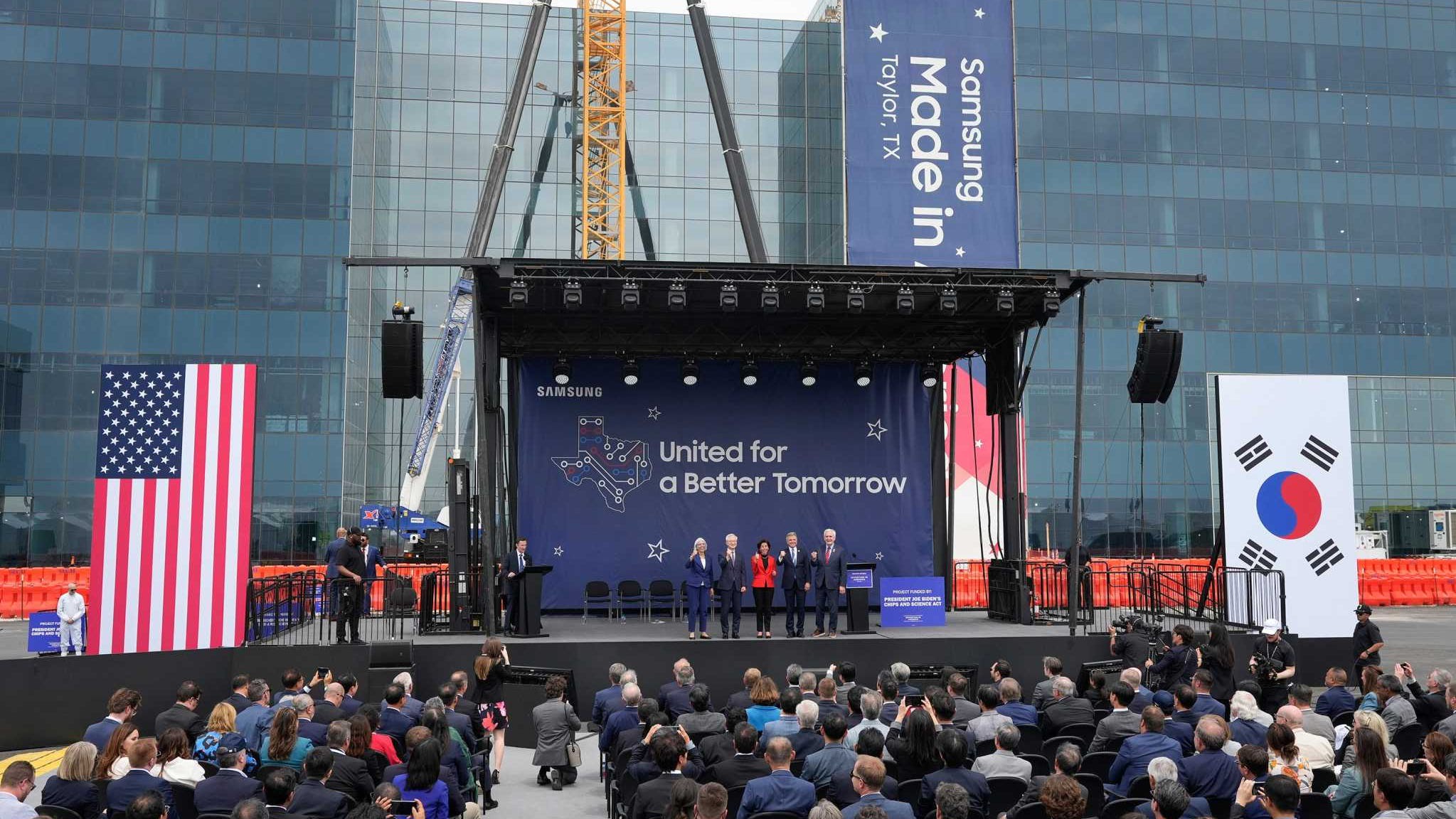business
Samsung Profit Plummets 55% Amid Chip Delays, Trade Pressures
Samsung Electronics' profit dropped 55% in Q2 as chip delays and trade tensions impact business, despite a $16.5 billion deal with Tesla tied to its Texas plant.
Published July 31, 2025 at 8:47pm

Samsung Electronics is struggling to catch up in the race to supply chips for artificial intelligence as it bets big on a delayed semiconductor plant northeast of Austin.
The world’s largest maker of memory chips and smartphones said Thursday its profit dropped another 55% in the second quarter. Its chipmaking operations — which include the new plant in Taylor — were hit even harder.
Samsung blamed U.S. export controls, weak demand and low production at its chip foundries for the decline.
The report came just days after the Korean company announced a $16.5 billion deal with Tesla Inc. tied to the company’s new plant in Texas. Samsung is counting on the Taylor fab — and business from clients like Tesla — to help revive its semiconductor division after more than a year of turbulence. The deal is to supply chips for AI workloads in Tesla’s automobiles, robots and data centers.
"With this as an inflection point, we hope to win additional orders from other major customers, and we expect it to help boost higher, more stable fab utilization at our advanced nodes, including the Taylor plant, which will in turn help boost revenue and profit," Noh Mi-jung, vice president of Samsung’s semiconductor foundry business, told investors after the report was issued. "Regarding investments, our goal has been to win next-gen chip awards from diverse U.S. clients as we set up our new Taylor fab, which is set to ramp up operations from 2026."
Samsung Electronics Co. Ltd. reported operating profit of $3.4 billion for the three months from April through June, down from $7.5 billion a year ago. Revenue rose slightly to $53.4 billion. The Device Solutions division, which includes the chip and foundry operations, reported a whopping 93.8% drop in profit, falling to $286.5 million from $4.6 billion a year ago. Semiconductor revenue also declined, to $20 billion from $20.5 billion.
Samsung originally planned for the Taylor facility to begin production in 2024 but the timeline has since slipped to 2026 as the company has lost ground in chip manufacturing. Reuters reported earlier this summer that the company had postponed deliveries of chipmaking equipment for the Taylor site because of a lack of confirmed customers for the chips it would produce. Nikkei Asia later reported that Samsung was still struggling to line up clients and had delayed completion of the factory.
The company’s share of the global foundry market slipped to 7.7% in the first quarter from 8.1% in the previous three months, according to Taipei-based TrendForce. Market leader Taiwan Semiconductor’s share was nearly 68%.
The new Texas plant on 1,000 acres near U.S. 79 and County Road 401 was announced in 2021, when Gov. Greg Abbott said Samsung’s planned $17 billion investment would be the largest-ever foreign direct investment in Texas. It included plans for two logic fabs and a research and development facility. In filings, Samsung has outlined the potential for up to 11 additional chip production facilities in the region in the coming decades.
However, U.S. trade policy is adding further pressure to the chip sector and raising new questions about such manufacturing growth. The U.S. Department of Commerce is expected to release findings from a semiconductor import probe within two weeks, after former President Donald Trump’s call in April for sweeping tariffs.
Trump announced earlier this week that the U.S. would impose a 15% tariff on semiconductor imports from South Korea, one of Samsung’s largest export markets. Imports of steel and aluminum from South Korea would also face 50% tariffs under Trump’s proposed global rate.
Samsung warned that those risks are likely to persist in the months ahead.
"Looking to the second half, geopolitical uncertainty driven by intensifying U.S.-China technology rivalry and potential U.S. semiconductor tariff policies will likely persist," Mi-jung said.
Samsung has had operations in Austin since 1997. Its shares fell 1.65% Thursday on its home Korean Stock Exchange.

